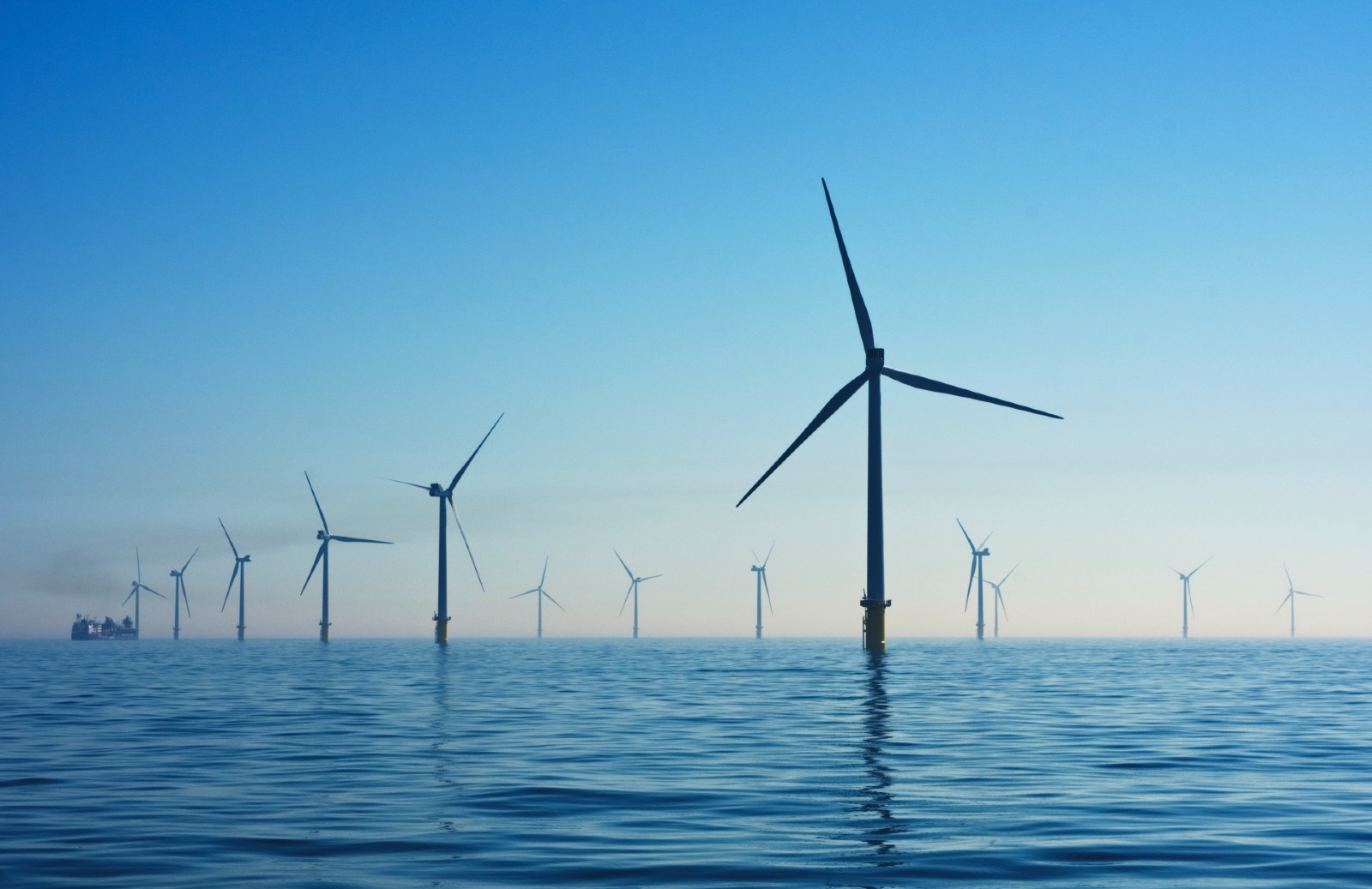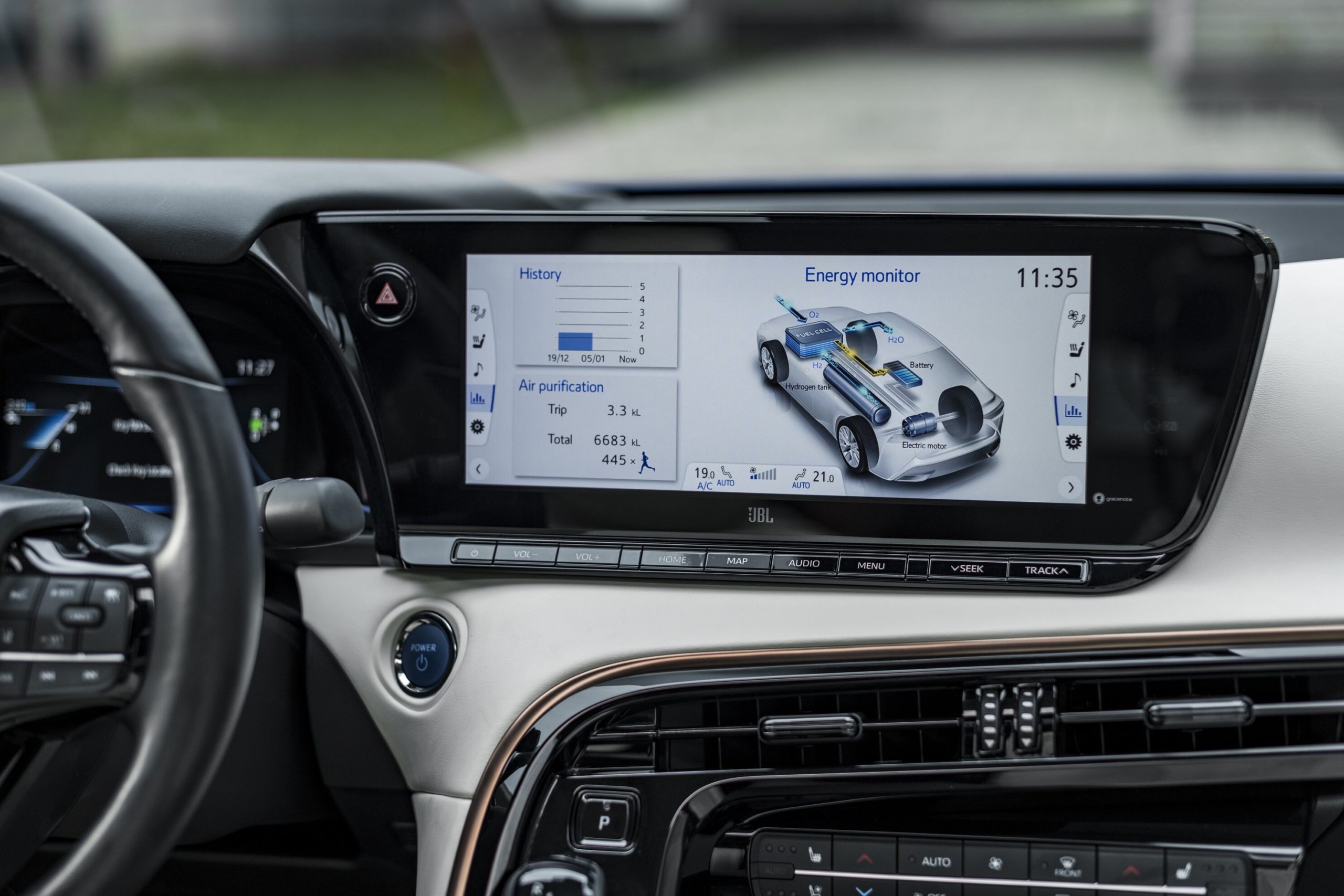- Italy and Algeria ink agreements on emissions reduction, energy security, and a possible renewables pipeline. (Decarbonization)
- UAE’s Gulf Marine Services supporting construction of French offshore wind farm. (Wind)
- Algeria’s agriculture industry with climate-positive policy measures. (Macro Picture)
- Are hydrogen FCEVs a viable alternative to combustion engines? (Green Tech)
- Egypt receives USD 3.2 mn grant to advance single use plastic strategy. (On Our Radar)
- Could “super-leverage points” lower global emissions dramatically? (What We’re Tracking Today)
- The largest hydrogen-electric powered aircraft completes a 10-minute test flight. (On Your Way Out)

Tuesday, 24 January 2023
Italy and Algeria ink agreements on emissions reduction and energy security
TL;DR
WHAT WE’RE TRACKING TODAY

Good morning, lovely people. After a flood of news yesterday, the region has quieted down a bit — but there is a bit of good news from North Africa to dive into.
THE BIG CLIMATE STORY- Algeria inked several agreements during a meeting between Italian Prime Minister Giorgia Meloni and Algerian President Abdelmadjid Tebboune in Algiers yesterday. The agreements cover emissions reductions, energy security, and the study of a potential hydrogen and ammonia pipeline between the countries. We have more on this story in the news well, below.
THE BIG CLIMATE STORY OUTSIDE THE REGION- Germany joins in on Mediterranean hydrogen pipeline: Germany will join Spain, Portugal, and France’s planned H2Med green hydrogen corridor, which — once operational in 2030 — will supply an estimated 2 mn metric tons of the green fuel (c.10% of the EU’s hydrogen demand), German Chancellor Olaf Scholz and French President Emmanuel Macron announced on Monday. The corridor, which was first announced last October, is expected to cost some USD 2.6 bn, Reuters previously reported.
The story is getting ink from: The AP | The Financial Times | Deutsche Welle.
CORRECTION- We incorrectly stated in yesterday’s issue that Adnoc holds a 42% stake in Fertiglobe, when Adnoc in fact holds a 36% stake in Fertiglobe. We have corrected the story on our website.
IN COP LAND- COP28 host country the UAE is under the microscope for its high per capita emissions in the run-up to the summit, the Financial Times reports. Like other MENA oil and gas giants — including Saudi Arabia, Kuwait, Bahrain, and Qatar — the UAE has some of the highest global carbon emissions per capita, “surpassing other big emitters including the US, China and Russia,” the salmon-colored paper notes, citing information from research group Our World In Data. Independent scientific research group Climate Action Tracker has termed the UAE’s national emissions reduction target of 31% by 2030 compared to a business-as-usual scenario “highly insufficient,” the outlet adds, adding that emissions would more than triple compared to 1990 levels.
But the UAE says it’s prioritizing climate action: The UAE is reportedly set to announce a new emissions reduction target of 18% by 2030, compared to 2019 levels, in its submission to the UN this year, the FT notes. And the country has “prioritized climate change in its national agenda,” its Climate Change Ministry is said to have told the news outlet. COP28 will be a COP of action, COP28 President Sultan Al Jaber said last week.
WATCH THIS SPACE- The voluntary carbon offset market is set to grow at least fivefold by 2030, according to a joint report by oil giant Shell and Boston Consulting Group (BCG). 52% of companies expect their portfolios to be dominated by carbon removal credits by 2030 and the voluntary carbon offset market will grow to USD 10-40 bn by 2030 — up from USD 2 bn in 2021, according to the report.
REMEMBER- Carbon credits are currently in hot water, with climate activists warning that carbon credits are being used to greenwash corporate emissions and a joint investigation by The Guardian, German weekly Die Zeit and nonprofit investigative journalism organization SourceMaterial release last found found that over 90% of the offsets provided by the world’s biggest carbon offset provider Verra are phantom credits, with only a handful showing evidence of reducing deforestation.
WORTH READING- Could “super-leverage points” lower global emissions dramatically? Super leverage points — relatively low-cost and difficulty policy actions that would have an outsized impact on decarbonization — including requiring more green ammonia use in fertilizer production, encouraging plant protein consumption, and mandating EV adoption could eventually result in a 70% reduction in emissions across the world’s most carbon-intensive sectors, according to research by the University of Exeter and consultancy firm Systemiq.
SOUND SMART- Leverage points refer to low or net-zero carbon alternatives becoming more competitive than carbon-intensive choices. If EVs replaced fuel combustion engine vehicles through the introduction of EV sale mandates, it would offset emissions and increase the affordability of battery supplies resulting in an acceleration of renewable energy projects. The tipping point for EVs is the most likely of the three aforementioned super leverage points to be realized in the near term, the report notes, with mandates ending the sale of fuel-based cars set by the UK for 2030 and China for 2035.
WORTH READING #2- CO2 removal tech accounts for only 0.1% of carbon capture: An independent report led by the University of Oxford has found that 99.9% of all CO2 being removed from the atmosphere annually is through forests with only 0.1% being removed through carbon dioxide removal methods, Reuters reports. The report — which measures carbon dioxide removal or the process of capturing CO2 from the atmosphere and storing it on land, the ocean and geological formations and in products — estimates that 99.9% of all CO2 is removed from afforestation and reforestation and only 0.1% is removed through carbon dioxide removal methods like bioenergy with carbon capture and storage (BECCS), biochar, and direct air capture with carbon capture and storage (DACCS). Investments in new technologies have amounted to c. USD 200 mn between 2020 and 2022, but there is still a need to expand CO2 removal technology use and boost land-based natural emissions reduction in order to achieve the Paris Agreement’s goal of 1.5C.
|
***
YOU’RE READING ENTERPRISE CLIMATE, the essential MENA publication for senior execs who care about the world’s most important industry. We’re out Monday through Thursday at 4am Cairo / 5am Riyadh / 6am UAE.
Were you forwarded this email? Get your own subscription without charge here or reach out to us on climate@enterprisemea.com with comments, suggestions and story tips.
***
CLIMATE DIPLOMACY- Iraq’s office at the UN will have a climate change and security advisor position for the first time, after UN Secretary General António Guterres decided to create the role in the Iraq office, local media outlet Iraqi News notes, citing reports from the Iraqi News Agency (INA). The announcement was made after a meeting on Sunday between Iraqi President Abdul Latif Rashid and UN Undersecretary General for Political and Peacebuilding Affairs Rosemary DiCarlo in Baghdad. DiCarlo reiterated UN support for Iraq in the face of climate change-induced challenges — namely water scarcity and drought — Iraqi News adds. Need a refresher on Iraq’s water woes? We’ve got you covered here and here.
CIRCLE YOUR CALENDAR–
Energy and environment conference heading to Dubai + Doha: The Indian Society of Heating, Refrigerating and Air-Conditioning Engineers (ISHRAE) is hosting its annual energy and environment conference, Urjavaran, tomorrow in Dubai, before heading to Qatar on Saturday, 28 January. The theme of the conference is “Dialogues in Sustainable HVACR and Architecture.”
EBRD + EU + GCF green finance event in Egypt next week: The European Bank for Reconstruction and Development (EBRD), the EU, and the Green Climate Fund will hold a green finance event on Tuesday, 31 January at the Nile Ritz Carlton Hotel in Cairo, Egypt. Check out the agenda here (pdf).
The Arabia CSR Awards opened the door for organizations to submit their applications for the event’s 16th cycle starting today until Friday, 30 June. The awardwinners will be announced during a ceremony on Wednesday, 4 October.
Check out our full calendar on the web for a comprehensive listing of upcoming news events, national holidays and news triggers.
DECARBONIZATION
Eni will work with Algeria’s Sonatrach on emissions reduction and energy security

Eni and Sonatrach ink agreements to boost decarbonization and energy security: Italian multinational energy company Eni signed two agreements with Algeria’s state-owned oil firm Sonatrach designed to achieve emissions reduction targets more rapidly and strengthen energy security, according to a statement. The agreements appear to have been signed during a joint press conference held by Italian Prime Minister Giorgia Meloni and Algerian President Abdelmadjid Tebboune in Algiers yesterday.
The details: The companies will identify prospects for greenhouse gas and methane emissions reduction, as well as initiatives in fields spanning energy efficiency, renewable energy, green hydrogen and carbon capture and storage, the statement notes. Eni and Sonatrach will also undertake studies to see how Algeria’s energy export to Europe could be improved, it adds.
ALSO- Italy and Algeria are eyeing a hydrogen and ammonia pipeline: Italy and Algeria have signed an agreement to study and possibly construct a pipeline that could transport hydrogen, ammonia, and gas from North Africa to Europe, Meloni and Tebboune announced in yesterday’s press conference, AFP notes. The agreement could even feature an electricity connection, the outlet adds.
Algeria has an increasingly large role to play in energy supply: Algeria — already a major gas exporter — could become a global leader in energy production, Meloni said at the conference. Before the Russia-Ukraine war, Italy imported 95% of its gas supply — with some 40% coming from Russia — and is now looking to Algeria as an increasingly important partner in helping to reduce this dependence, AFP tells us.
WIND
UAE’s Gulf Marine Services supporting construction of offshore wind farm in France

Gulf Marine Services has signed a contract with an unidentified firm to support the development of an offshore wind farm in France, according to a disclosure to the London Stock Exchange yesterday. No financial details have been disclosed.
The details: The company supplies support vessels for offshore projects in the renewable energy, oil and gas sectors. The contract is due to complete in 1Q 2023, it added.
GCC interest in European offshore wind assets has been on the rise: The UAE’s Lamprell signed a contract worth over USD 200 mn to supply wind turbine components to Scotland’s Moray West offshore wind farm in September. Abu Dhabi’s Mubadala acquired stakes in German offshore wind developer Skyborn Renewables and US offshore project Bluepoint Wind in October. The acquisition of UK energy storage firm Arlington Energy by the UAE’s Masdar in late October would enable the clean energy firm to increase its offshore wind and renewables investments. Earlier this month, an agreement inked between Masdar and Azerbaijan’s state-owned oil company Socar included the joint development of offshore wind energy projects.
MACRO PICTURE
Algeria’s agriculture industry with climate-positive policy measures

Algeria’s agricultural policy has allowed it to optimize productivity and sustainability while tackling resource scarcity, according to a recent WEF report (pdf). Despite only 17% of the country’s land being arable, the Algerian National Agricultural and Rural Development Program has boosted food production, increased water-use efficiency, decreased crop emissions, and lowered rates of malnourishment.
Food production boost: The country improved its food security by designing policies to encourage private sector investment and reduce food imports by removing foreign ownership restrictions and lifting bans on agricultural equipment imports, increasing food production by 114% per capita between 2002 and 2018, the report finds. That far outpaces the 9% median growth in food production across Africa and the 5% median in emerging and diversifying countries during the same time period. Increased food production also helped bring down undernourishment rates in the country to below 3% of the population in 2019 — the lowest rate in Africa — from 8% in 2001.
Clean energy sources: A USD 10.3 mn private public partnership greenhouse complex in the city of Touggourt — a collaboration between Algeria’s National Office of Irrigation and Drainage and Spain’s Alcantara Systems — is powered by renewable geothermal energy. “The greenhouses are expected to increase yields significantly, while keeping water use, energy costs, and emissions low,” the report notes.
Tackling water waste and targeting crop cycles and yields: The report finds that Algeria achieved the highest agricultural water-use efficiency in Africa and decreased its crop emissions intensity by 51% between 2002 and 2018. The country’s Agriculture Ministry used satellites and drones to identify irrigation needs and introduced water table-fed irrigation systems in the El Oued desert, installing rotating sprinkler systems to draw on water tables to irrigate fruits and vegetables. It has also introduced traditional ghouts — oases created by planting palms as windbreaks directly above the water table and creating depressions in the dunes ten meters deep to grow crops alongside them.
Incentives, land grants, and more private sector engagement: A 2010 program incentivized farmers to invest in short-cycle crops with low water requirements and switch to high-yielding varieties of staple crops through land grants and fertilizer subsidies. Algeria also removed restrictions that previously capped foreign stakes in any investment project at 49% and lifted bans on the import of agricultural equipment to encourage private sector investment in the sector.
High self-sufficiency and labor force participation: A 2015 report by Oxford Business Group found that domestic production increased self-sufficiency of staples and increased employment in the sector to represent a fifth of the labor force in 2013.
GREEN TECH

Are hydrogen-powered electric vehicles a viable alternative to combustion engines? Toyota displayed two models of the Mirai sedan boasting hydrogen fuel cell technology (FCEVs) at Abu Dhabi’s World Future Energy Summit earlier this month, according to a press release. But is there room for FCEVS in the age of fully electric vehicles?
How do FCEVs work? FCEVs create electricity using hydrogen and oxygen, produce no tailpipe emissions and emit only water and warm air as a byproduct. A fuel cell made of thin plates draws hydrogen from a pressurized tank and fuses it with oxygen to produce electricity. They’re more efficient than conventional internal combustion vehicles with a driving range of over 300 miles (483 km) and can be refueled in 5 minutes, according to the US Department of Energy’s Alternative Fuels Data Center.
Widespread use is hampered by limited infrastructure: Hydrogen fueling stations are still limited, postponing the widespread adoption of the technology as a viable alternative to combustion engine vehicles and EVs. Hydrogen is also more expensive than traditional gasoline (so far). Additionally, because hydrogen is highly flammable, FCEVs (and charging stations) have to abide by more stringent safety requirements, according to the Alternative Fuels Data Center.
Long-haul transport may benefit more from hydrogen tech: Hydrogen’s true potential may lie in long-haul transport, according to a McKinsey report. Battery weight and charging speeds make it less efficient to electrify bus and truck fleets, which can benefit from the longer range and shorter fueling times of hydrogen — not to mention not having the added weight of bulky batteries. Mercedes-Benz is developing hydrogen-fueled trucks which are expected to have a range of 1k km or more and be released during the second half of the decade.
EVs hold the advantage in passenger cars: As the cost of making EV batteries goes down, automakers are investing more resources to develop hybrids and EVs — which are more cost-efficient — rather than FCEVs. Besides Toyota’s Mirai, the Hyundai Nexo is the only other commercially available hydrogen fuel cell vehicle on the market. Honda’s discontinued Clarity Fuel Cell, was also powered by hydrogen.
But it isn’t stopping automakers from experimenting with the technology: BMW is developing the iX5 Hydrogen model, with plans for release internationally in 2Q 2023. The company also has plans to develop a fuel cell SUV with Toyota, which is expected to enter mass production by 2025 at the latest. Audi and Landrover are also developing hydrogen-fueled commercial vehicles.
ALSO ON OUR RADAR

Egypt is in the final stages of completing a study for the development of an alternative strategy for single-use plastics with help from Japan, according to an Environment Ministry statement. The country will receive a USD 3.2 mn grant from Japan to support circular economy practices in the single-use plastic value chain in a bid to reduce consumption. The United Nations Industrial Development Organization (Unido) and the Japan International Cooperation Agency prepared a study on the plastic value chain in Egypt to identify alternative materials, packaging technology, and recycling technology. The project, which was announced in 2021, aims to advance the country’s efforts with support from Unido.
Morocco’s OCP will provide India with sustainable fertilizers: Moroccan state-owned fertilizer manufacturer OCP Group signed a partnership agreement with Indian private and public sector agriculture firms for the export of 1.7 mn tons of phosphate fertilizers, according to a company statement. The agreement will provide 700k metric tons of customized triple super phosphate fertilizers, which will minimize waste levels in the country, OCP notes.
OTHER STORIES WORTH KNOWING ABOUT THIS MORNING-
- Shell Oman and Amlaak Energy Resources will develop smart service stations in the Sultanate that use 63% less energy than conventional service stations using solar energy and recycle fuel vapor. (Statement)
- The Kuwait Oil Company (KOC) signed an agreement with Worley Consulting to conduct feasibility studies on installing renewable power across their gas fields as part of their 2050 net-zero target. KOC had sent out requests for proposals to five companies for the installation of a 3.4-3.6 MW wind turbine at its Ratqa oil field. (Zawya)
- The Food and Agriculture Organization (FAO) and Jordan’s Agriculture Ministry signed an agreement for a project to transform food systems to bolster food security. The project will address the development of efficient and sustainable food systems, among other objectives.(Jordan Times)
- UAE’s Aldar Properties and Diamond Developers netted AED 1 bn in sales in a single day, selling out the first phase of their sustainable city Yas Island. (Statement)
ON YOUR WAY OUT

The successful maiden flight of ZeroAvia’s 19-seater hydrogen-electric-powered jet marks an additional step forward towards zero emissions flights, according to a press release released last week. British-American aircraft developer ZeroAvia completed a 10-minute test flight last week, making it the largest hydrogen-electric powered aircraft to have successfully taken flight. The project — which is part of the UK’s HyFlyer II program and is backed by the UK government’s ATI Programme — includes among its partners green hydrogen-fueling provider EMEC Hydrogen and Aeristech, a developer of power dense and air compressor solutions.
Could we be seeing hydrogen-powered commercial flights soon? The company will work to deliver commercial routes using the technology by 2025, founder and CEO Val Miftakhov said, the statement notes. ZeroAvia has raised upward of USD 140 mn in funding from the likes of United Airlines, American Airlines, and Bill Gates’ Breakthrough Energy Ventures, in addition to 1.5k pre-orders for its fuel-cell systems, reports MIT Technology Review. It has received GBP 12.3 mn from the British Department for Business, Energy and Industrial Strategy, the Aerospace Technology Institute, and Innovate UK.
Aviation is increasingly looking to hydrogen to lower its carbon footprint: Rolls-Royce and easyJet tested the use of hydrogen in place of conventional aviation fuels to power jet aircraft last November. Although the results found that the engines could be started up and run at low speeds, the tests concluded that further research and aircraft redesign was needed to accommodate hydrogen fuel.
CALENDAR
JANUARY 2023
22-24 January (Sunday-Tuesday): Energy & Sustainability Forum, Manama, Bahrain.
January 2023: Bid submission deadline for green hydrogen projects to Hydrogen Oman (Hydrom).
FEBRUARY 2023
6-8 February (Monday-Wednesday): Saudi International Marine Exhibition and Conference, Riyadh, Saudi Arabia.
4-9 February (Saturday- Wednesday) International Association for Energy Economics’ International Conference, Riyadh, Saudi Arabia.
13-15 February (Monday-Wednesday): The Egypt Petroleum Show, Cairo, Egypt.
21-22 February (Tuesday-Wednesday): The Arab Green Summit, Dubai, UAE.
21-23 February (Tuesday-Thursday): World Environment, Social and Governance (ESG) Summit, Dubai, UAE.
MARCH 2023
7-9 March (Tuesday-Thursday) Middle East Energy exhibition, Dubai World Trade Center, Dubai, UAE.
15-19 March (Wednesday-Sunday): Qatar International Agricultural and Environmental Exhibition, Doha, Qatar.
22-24 March (Wednesday-Friday): UN 2023 Water Conference, New York, NY, United States.
AVRIL 2023
6 April (Thursday): Arabia CSR Awards 2022 Clinic (online).
MAY 2023
1-4 May (Monday-Thursday): Arabian Travel Market, Dubai, UAE.
2-7 May (Tuesday-Sunday): Salon International de l’Agriculture au Maroc (SIAM), Meknes, Morocco.
16-18 May (Tuesday-Thursday): Seatrade Maritime Logistics Middle East, Dubai, UAE.
29-31 May (Monday-Wednesday): Electric Vehicle Innovation Summit, Abu Dhabi, UAE.
JUNE 2023
Bloomberg New Economy Gateway Africa Conference, Marrakesh, Morocco.
1-3 June (Thursday-Saturday): Envirotec and Energie Expo, Tunis, Tunisia.
SEPTEMBER 2023
Chariot Limited and Total Eren’s feasibility study on a 10 GW green hydrogen plant in Mauritania to be completed.
OCTOBER 2023
2-4 October (Monday-Wednesday): WETEX and Dubai Solar Show, Dubai, UAE.
4 October (Wednesday): Arabia CSR Gala Awarding Ceremony, UAE.
NOVEMBER 2023
30 November – 12 December: Conference of the Parties (COP 28), Dubai, UAE.
EVENTS WITH NO SET DATE
End-2022
KSA’s Neom wants to tender three concrete water reservoir projects to up its water storage capacity by 6 mn liters.
2023
Early 2023: Egypt’s KarmSolar to launch KarmCharge, the company’s EV charging venture.
1Q2023: Oman will award two blocks of land for green hydrogen projects in Duqm, Oman.
Mid-2023: Sale of Sembcorp Energy India Limited to consortium of Omani investors to close.
Phase C of the 900-MW of the Mohammed bin Rashid Al Maktoum Solar Park in Dubai to be completed.
Saudi Basic Industries Corporation (Sabic) steam cracker furnace powered by renewable energy to come online.
4Q2023: Oman to award four blocks of land for green hydrogen projects in Thumrait, Oman.
2024
End-2024: Emirati Masdar’s 500 MW wind farm in Uzbekistan to begin commercial operations.
QatarEnergy’s industrial cities solar power project will start electricity production.
First 1.5 GW phase of Morocco’s Xlinks solar and wind energy project to be operational.
2025
Second 1.5 GW phase of Morocco’s Xlinks solar and wind energy project to be operational.
UAE to have over 1k EV charging stations installed.
2026
1Q 2026: QatarEnergy’s USD 1 bn blue ammonia plant to be completed.
End-2026: HSBC Bahrain to eliminate single-use PVC plastic cards.
Iraq’s Mass Group Holding wants to invest EUR 1 bn on its thermal plant Mintia in Romania to have 62% of run on renewable energy, while expanding its energy capacity to at least 1.29k MWh.
2027
MENA’s district cooling market is expected to reach USD 15 bn.
2030
UAE’s Abu Dhabi Commercial Bank (ADCB) wants to provide AED 35 bn in green financing.
UAE targets 14 GW in clean energy capacity.
Tunisia targets 30% of renewables in its energy mix.
Qatar wants to generate USD 17 bn from its circular economy, creating 9k-19k jobs.
Morocco’s Xlinks solar and wind energy project to generate 10.5 GW of energy.
2035
Qatar to capture up to 11 mn tons of CO2 annually.
2045
Qatar’s Public Works Authority’s (Ashghal) USD 1.5 bn sewage treatment facility to reach 600k cm/d capacity.
2060
Nigeria aims to achieve its net-zero emissions target.
Enterprise Climate is available without charge thanks to the generous support of HSBC (tax ID: 204-901-715), the leading corporate and retail lender in Egypt; and Infinity Power (tax ID: 305-170-682), the leading generator and distributor of renewable energy in Africa and the Middle East. Enterprise Climate is delivered Mon-Thurs before 4 am UAE time. Were you forwarded this copy? Sign up for your own delivery at climate.enterprise.press. Contact us on climate@enterprisemea.com.

